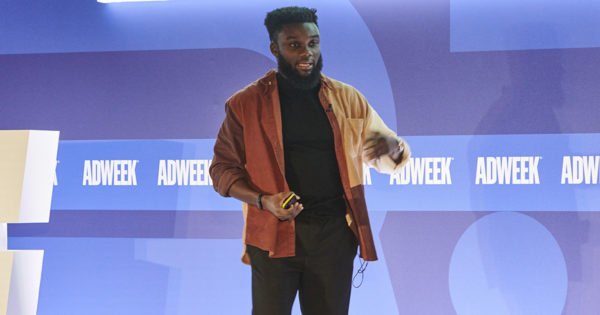
According to the Influencer Marketing Factory, 97% of Gen Z use social media as their main form of shopping inspiration.
As this younger cohort of consumers wield more power and influence, brands are tasked with building trust with them now or risk falling by the wayside.
Timothy Armoo, CEO and founder of influencer marketing agency Fanbytes, joined Adweek at Social Media Week Europe to discuss actionable strategies for predicting trends and what brands can do to keep up with the digitally native Gen Z consumer.
Predicting Gen Z engagement
Social media has come a long way since the early days of Facebook in the early 2000s when its primary purpose was connecting friends, colleagues and strangers with shared interests.
According to Armoo, today’s social media can best be described as a web of personalized broadcasts allowing for higher engagement and virality. He said there are three key things brands must understand about the future of engaging with the Gen Z audience:
- Every company will become a media company
According to Armoo, the future of Gen Z engagement revolves around the notion that every creator is their own TV channel.
“By creator, I’m not just talking about influencers. I’m talking about every single person online,” he said. “For brands, as we think about how to engage with this audience, if you want to win, you have to act like you’re a TV channel. The moment you shift your mindset from that of a brand to that of a media company, that’s where you are truly going to win.”
- Mastering the new algorithms of social
When Armoo started Fanbytes in 2017, he said it was all about follower growth. From 2020 on, he said video content dethroned follower count as the most important part of the social media algorithm, creating an entirely new metric for engagement.
“It became incredibly easy to optimize things that people would watch, and the algorithm would show you more of the things you were actually interested in,” he explained. “That’s when we saw the rise of TikTok, YouTube Shorts and Instagram Reels.
“When you start to understand that, actually, it’s not so much about follower count and more about video content, you start to realize the massive opportunities here, where in the past if you didn’t have many followers, your content wouldn’t get that much reach. Today that argument is completely dismissed.”
- Communities over audiences
According to Armoo, the third facet of mastering Gen Z engagement lies in the notion of communities over audiences. He said as the definition of virality evolves, it’s no longer about getting the highest number of views but truly connecting with niche audiences.
“Gen Z have grown up in sub-communities,” he said. “When social media was in its infancy, everyone saw it as a broad, monolithic thing. When you have a group of people who have grown up in niche communities, that paradigm changes. Today, dominating a small and relevant niche is more important than leveraging a massive audience.
https://www.adweek.com/media/predicting-gen-z-online-behavior-social-media/

